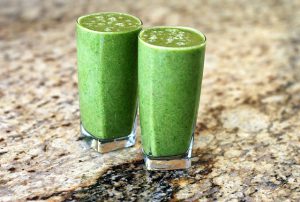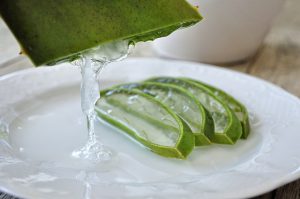Restoring Vision Naturally: Effortless and Impactful Solutions
Jan 27, 2024
Introduction:
In the quest for improved well-being, the health of our eyes is paramount. Vision is one of our most cherished senses; losing it can be daunting. However, nature offers many solutions that may help maintain and even improve our eyesight. This introduction delves into the potential of natural therapies that harness the power of specific nutrients and antioxidants to support and enhance eye health.
Natural Therapy for Vision Improvement
A potential natural therapy for vision improvement could involve using certain nutrients and antioxidants known to support eye health. This therapy would focus on two main components: Astaxanthin and a combination of Lutein and Zeaxanthin.
Restoring Vision Naturally: The Astaxanthin Advantage
It is a naturally occurring red carotenoid pigment in marine environments, especially in microalgae and seafood such as salmonids, shrimps, and lobsters. It has potent antioxidant, anti-inflammatory, and antiapoptosis effects, making it beneficial for preventing various diseases, including those related to vision.
Astaxanthin has been shown to improve stem cell potency by increasing the proliferation of neural progenitor cells. This could potentially aid in regenerating damaged cells within the eye, thereby improving vision. Additionally, astaxanthin has been found to affect visual function when taken orally positively. It has also been associated with improvements in age-related macular degeneration, a common cause of vision loss.
Unlike other types of antioxidants, astaxanthin never becomes a pro-oxidant, which means it does not contribute to harmful oxidative stress in the body. Some antioxidants, including vitamin C, for instance, can also have pro-oxidant effects in the body under certain conditions, which means they create substances called free radicals that, as antioxidants, also help protect against. However, astaxanthin is considered a pure antioxidant because it’s thought not to have any pro-oxidant capabilities.
Lutein and Zeaxanthin are two other carotenoids known to be beneficial for eye health. They are found in high concentrations in the macula, the part of the retina responsible for central vision. These carotenoids help protect the eyes from blue light and oxidative stress damage, which can lead to vision loss.
Increased macular pigment optical density and visual acuity have been observed following consuming a buttermilk drink containing lutein-enriched egg yolks. This suggests that dietary intake of lutein and zeaxanthin could potentially improve vision. Furthermore, Age-Related Eye Disease Studies (AREDS/AREDS2) have shown that a combination of antioxidants, including lutein and zeaxanthin, can reduce the risk of progression to advanced age-related macular degeneration.
Lutein is a carotenoid with reported anti-inflammatory properties. Much evidence shows that lutein has several beneficial effects, primarily on eye health. In particular, lutein is known to improve or even prevent age-related macular disease, which is the leading cause of blindness and vision impairment.
Lutein and Zeaxanthin: Guardians of the Macula
Lutein and Zeaxanthin are potent allies in the fight to maintain healthy vision. These carotenoids are naturally occurring pigments found in plants. They are in high concentrations in the macula, a small area in the retina’s centre crucial for sharp, central vision.
The Role of Lutein and Zeaxanthin in Eye Health
These carotenoids are known as macular pigments because of their location in the eye and their role in protecting the retina. They serve as a natural sunblock, absorbing excess light energy, particularly harmful blue light and ultraviolet light. This protective quality is vital in preventing light-induced oxidative damage that can lead to macular degeneration, a leading cause of vision loss.
Antioxidant Properties and Vision Enhancement
As antioxidants, Lutein and Zeaxanthin help defend the eyes against free radicals and oxidative stress. This defence is crucial because oxidative stress can lead to various eye diseases, including age-related macular degeneration (AMD) and cataracts. These carotenoids help maintain eye health and improve visual performance by reducing oxidative damage. They have been associated with enhanced visual acuity, better contrast sensitivity, and reduced glare impairment.
Dietary Intake and Supplementation
The human body does not synthesize Lutein and Zeaxanthin, so they must be obtained through diet or supplements. Dark leafy greens, egg yolks, and certain fruits and vegetables are rich in these nutrients. Studies have shown that increasing dietary intake of these carotenoids can increase macular pigment optical density (MPOD), which is linked to a lower risk of AMD and may enhance visual acuity.
Clinical Research and Recommendations For Restoring Vision Naturally
The Age-Related Eye Disease Studies (AREDS and AREDS2) have provided strong evidence for the role of Lutein and Zeaxanthin in eye health. These studies recommend a combination of antioxidants, including these carotenoids, for individuals at high risk of developing advanced AMD. The research suggests that not only can these nutrients help prevent the onset of AMD, but they may also slow the progression of the disease in those who have it.
Emerging research indicates that the benefits of Lutein and Zeaxanthin may extend beyond eye health. Growing evidence suggests that these carotenoids could also positively impact cognitive function, particularly in the elderly.
In summary, Lutein and Zeaxanthin are essential nutrients for maintaining eye health and potentially improving vision. Their antioxidant properties and ability to filter harmful light make them crucial for protecting the macula and preserving central vision. A diet rich in these carotenoids, or appropriate supplementation, could benefit those looking to support their eye health and overall well-being.
Euphrasia Officinalis L and Vision
Euphrasia Officinalis L., commonly known as Eyebright, is a herb traditionally used in folk medicine, primarily for treating eye disorders. The plant is native to Europe, notably the United Kingdom, but has also been found in Northern and Western Asia and North America. It thrives in open grasslands or meadows, especially in temperate climatic zones.
The above-ground parts of the Eyebright plant are used to make teas, tinctures, and dietary supplements. These can be taken orally to support eye health. Eyebright is also employed in homoeopathy, a form of natural medicine that uses hugely diluted substances for treatments.
Eyebright has been used by herbalists primarily as a poultice for the topical treatment of eye inflammations, including conjunctivitis, blepharitis, and sites. A compress made from a decoction of the eyebright relieves redness, swelling, and visual disturbances due to eye infections. It has also been used to treat eye fatigue and other vision disturbances.
In addition to its traditional uses, recent research has shown that Eyebright extract can positively affect human corneal cells. This suggests that it could potentially aid in treating various eye conditions.
Eyebright is also used in the form of eye drops for topical application. These eye drops contain Eyebright extract and other ingredients like hyaluronic acid to help soothe eye problems such as dry, tired, or irritated eyes.
Conclusion
Our vision is a precious gift, a window to the world that allows us to experience life’s colours and contrasts. However, ageing, lifestyle choices and environmental stressors can affect our eye health. The good news is that nature provides potent tools that can help support and possibly even improve our vision—Antioxidants like Astaxanthin, Lutein, and Zeaxanthin.
Astaxanthin, a marine-based carotenoid known for its superior antioxidant properties, has shown the potential to enhance stem cell potency, suggesting a possible role in regenerating damaged eye cells. Lutein and Zeaxanthin, found in abundance in the macula, act as frontline defenders against blue light and oxidative stress, factors that can contribute to vision loss. Increasing dietary intake of these carotenoids has been associated with improved visual acuity and a reduced risk of age-related macular degeneration.
In addition, exploring the potential of herbs like Eyebright (Euphrasia Officinalis L.) that have a history of usage in traditional medicine for eye health could provide further avenues for natural vision improvement.
However, it’s essential to remember that while these natural therapies offer promising benefits, they are not a substitute for regular eye check-ups and professional medical advice. Eye health is a complex field; individual needs can vary based on age, genetic predisposition, and existing health conditions.
Incorporating Astaxanthin, Lutein, Zeaxanthin, and Eyebright extract into our diets, either through food sources or supplements, can be a part of a proactive strategy for maintaining eye health. However, it should be done under healthcare professionals’ guidance to ensure a balanced and safe approach.
In conclusion, the journey to enhance vision naturally is a promising field, blending traditional practices’ wisdom with modern science’s insights. With the right balance of nature’s offerings and expert advice, we can take proactive steps towards preserving and enhancing our sight, paving the way for a future where every sunrise is clearer and every detail is sharper.
Ignite Your Intellect: Dive In!

Wheat Grass Shots: A Green Elixir for Your Health

The Homocysteine Controversy: Balancing the Pros and Cons

Affordable and Effective Supplements To Reduce Blood Sugar

The Priceless Fortune Within: Health is Wealth

Sip the Goodness: Aloe Vera Drink Delights

Low-dose Aspirin Can Reduce Breast Cancer Risks

Anti Aging Superfoods: Rejuvenate Your Way to Youthfulness

What is Succinic Acid: Health Potential and Benefits

Tech Trends 2023: Cultivating Tomorrow’s Agriculture with Innovation!
Saffron Supplement: Unveiling its Tantalizing Health Benefits



